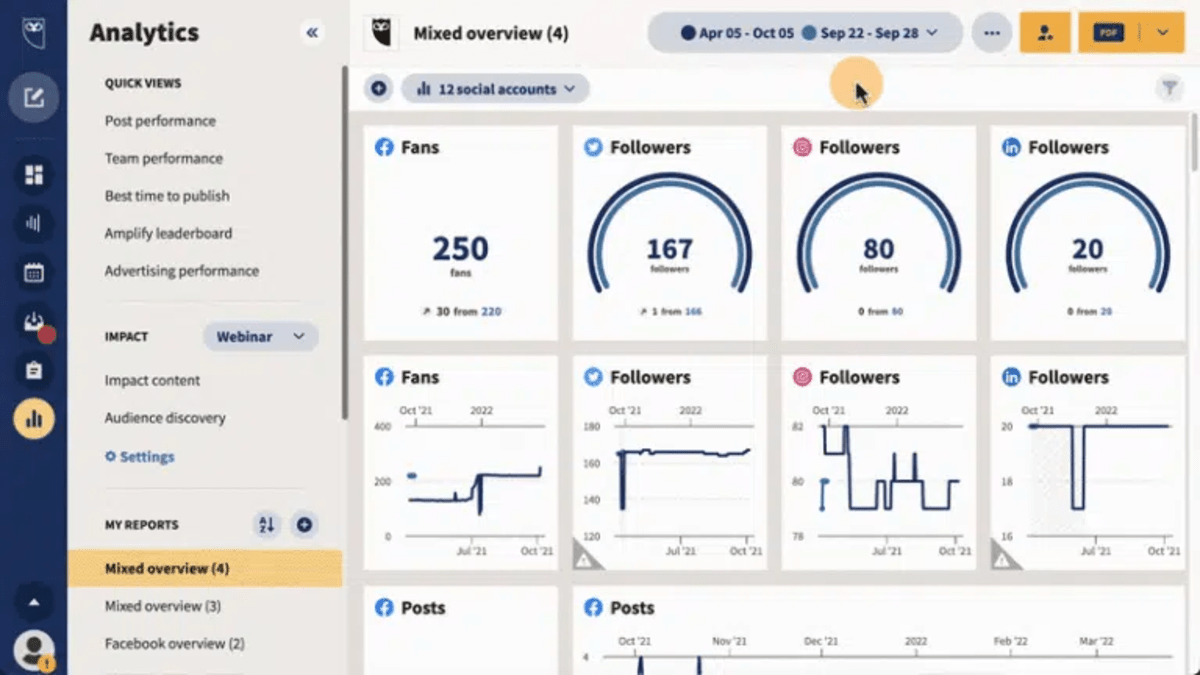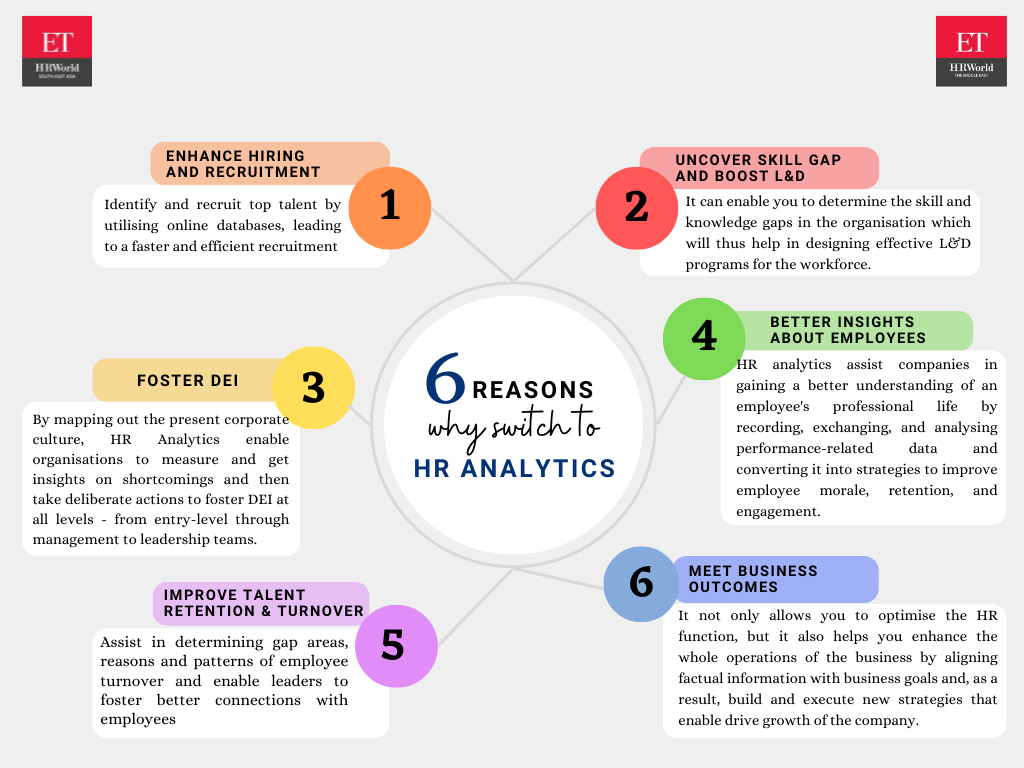Transform Data right into Techniques with Cutting-Edge Analytics
Transform Data right into Techniques with Cutting-Edge Analytics
Blog Article
Make The Most Of Development: How Analytics Drive Better Strategies
By taking advantage of information understandings, companies can fine-tune their functional strategies, anticipate market modifications, and enhance client interaction. The obstacle exists not just in collecting data however in successfully analyzing it to drive concrete end results.
Understanding Data Analytics
Data analytics is a systematic computational evaluation of data that enables organizations to uncover significant patterns and insights. This process encompasses a variety of techniques, including analytical evaluation, anticipating modeling, and information mining, which collectively aim to transform raw information right into workable info - Analytics. By utilizing these approaches, companies can make educated decisions that are rooted in empirical evidence instead of intuition alone
The structure of information analytics depends on its ability to deal with substantial amounts of details from varied sources. This includes organized data, such as databases, and disorganized data, consisting of social media interactions and consumer responses. With the use of specialized software application and tools, analysts can remove and refine this information successfully, recognizing patterns and correlations that may not be right away obvious.
Understanding information analytics likewise involves recognizing the significance of information high quality and integrity. Accurate and dependable information is important for meaningful analysis; therefore, organizations need to execute durable information administration methods. The iterative nature of analytics enables for continual refinement and renovation of strategies, making certain that organizations stay active in the face of altering market dynamics and consumer behavior.
Key Advantages of Analytics

One of the key benefits of analytics is its capacity to give workable understandings. Organizations can quickly assess substantial quantities of information, discovering patterns that may not be promptly evident.
One more significant benefit is boosted customer understanding. Analytics devices allow companies to segment their target market, track customer habits, and personalize marketing initiatives. This targeted technique not only improves consumer interaction but also drives greater conversion rates.

Implementing Analytics Techniques
To totally realize the advantages of analytics, organizations must embrace organized strategies for application. This starts with clearly specifying purposes that align with wider organization goals. By developing specific, measurable results, companies can focus their analytics efforts on areas that produce the highest return on investment.
Following, companies need to prioritize data administration to make certain the integrity and safety of the data being assessed. This entails establishing protocols for data collection, storage space, and gain access to while adhering to appropriate laws. Making certain top quality data is critical for generating meaningful insights.
Additionally, promoting a culture of data-driven decision-making is important. This requires training workers to analyze analytics findings and encouraging cooperation across departments. When teams recognize the worth of analytics, they are extra most likely to integrate understandings into their everyday procedures.
Lastly, organizations need to routinely review and improve their analytics strategies. The landscape of data and modern technology is consistently advancing, and remaining versatile will enable organizations to leverage brand-new devices and techniques successfully. By executing these structured approaches, companies can maximize the influence of their analytics efforts and drive sustainable development.
Tools for Reliable Evaluation
Efficient evaluation depends on a variety of devices that help with the extraction of understandings from data - Analytics. These devices can range from simple spreadsheet applications to sophisticated equipment discovering systems, each serving an one-of-a-kind objective in the analytical procedure
Information visualization software application, such as Tableau and Power BI, plays a vital role in changing complex datasets right into easy to understand graphical depictions. These devices allow experts to identify patterns and patterns quickly, permitting more informed decision-making.
Analytical evaluation software program, like R and SAS, offers innovative abilities for carrying out extensive analyses, including regression, hypothesis testing, and anticipating modeling - Analytics. These attributes empower companies to attract meaningful conclusions from their data, determining possible chances and risks
Additionally, database administration systems such as SQL and NoSQL data sources supply the essential infrastructure for storing and querying large volumes of data effectively. webpage They make certain that information is arranged and obtainable for evaluation.
Lastly, organization knowledge systems integrate different information resources, giving a comprehensive sight of business efficiency. By utilizing these tools efficiently, companies can enhance their analytical click to find out more capabilities, allowing them to establish methods that maximize development and enhance general performance.
Study of Success
Effective organizations often leverage information analytics to drive impactful techniques, as shown by a number of notable instance studies. By utilizing these insights, Netflix has efficiently tailored its material recommendations, resulting in boosted customer interaction and customer retention.

In addition, Starbucks employs data analytics to identify ideal store places and fine-tune its product offerings. By checking out consumer demographics and acquiring patterns, Starbucks successfully identifies high-potential markets and tailors its food selection to local tastes, driving sales and customer loyalty.
These case studies illustrate that efficient application of data analytics can cause calculated benefits, cultivating development from this source and growth within organizations throughout numerous sectors.
Conclusion
To conclude, the integration of analytics into business approaches dramatically boosts decision-making procedures and promotes sustainable growth. By leveraging data-driven understandings, organizations can determine trends, anticipate market changes, and maximize operations. The effective execution of analytics devices better supports dexterity and technology, allowing organizations to browse competitive landscapes with higher precision. Ultimately, a dedication to analytics not only drives prompt efficiency improvements but additionally protects long-term success in an ever-evolving industry.
Data analytics is an organized computational evaluation of data that makes it possible for organizations to reveal meaningful patterns and understandings.Understanding data analytics likewise involves acknowledging the relevance of data high quality and honesty. Trustworthy and accurate data is vital for meaningful analysis; hence, organizations need to apply robust data administration techniques.Next, organizations must focus on data governance to make sure the stability and security of the data being examined.Effective companies frequently take advantage of data analytics to drive impactful methods, as confirmed by several remarkable instance researches.
Report this page